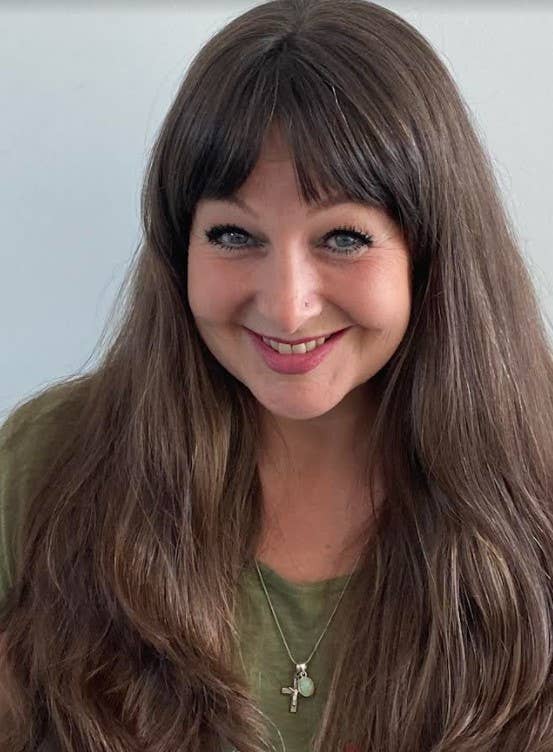Get A Job In Games: Meet OPM
Sponsored article: The recruitment agency shares its expertise on the state of hiring in the video games industry
The world of video game recruitment is always fast changing, with new jobs, new studios, and entirely new avenues of technology opening up constantly.
And that was even before the COVID-19 pandemic transformed the workplace overnight.
Recruitment agencies are at the forefront of finding the talent to meet these future challenges. As part of Get A Job In Games Month, we catch up with OPM MD Kim Parker Adcock to find out how things are evolving.
For those who don't know, tell us a bit about OPM, what do you do?
We are a recruitment agency, working specifically in the video games sector. Games companies from around the world pay us to fill their difficult vacancies. Because of this our service is completely free for job seekers, and we help people across all skills and seniority levels find new jobs in the industry.

Once lockdowns began last year, what did that do to games recruitment?
Initially there was a bit of a shock, and a small number of our clients paused recruitment due to the uncertainty of it all. A lot of companies were setup for remote working from the off, and we found their recruitment needs did not really change. Mostly, companies continued to accept CVs and setup phone interviews, however, were a little hesitant to give start dates to new hires during the first lockdown.
And what's changed since?
In short, a massive shift to hiring remote workers. Companies and job seekers quickly adapted to the new working environment that had been forced on us all. At the same time, the games industry in general has seen increased games sales during the pandemic, and successful companies tend to expand. Because of this, and in contrast to what many recruitment companies in other sectors have experienced, we have seen a substantial increase in active jobs on the market and we have placed more people than any year before.
Do you find studios are more willing to hire people from further afield now there's less requirement to be in the office? Or is local talent or talent willing to relocate still the order of the day?
This really depends on the individual company; however, it is becoming clear a lot more are opening to the idea of hiring people from further afield. In the ideal world you would love to find the perfect candidate living on the same street as your business, but with the niche roles this is often not realistic. It makes perfect sense to utilise remote working for these tricky roles and hire the best staff available to you.
What are the most in-demand roles in games right now?
"We have seen a substantial increase in active jobs on the market and we have placed more people than any year before"
This is where I usually talk about the talent-shortage for programmers and some other niche roles like UI Artists, which is still the case. However, the truth is most roles are high in-demand right now. There is a recruitment boom in this industry, and this is an excellent time for anyone thinking of moving their career into this space.
What new roles have emerged in recent years and what do they entail?
We're being asked more often to find Product Managers rather than Producers or Marketing Managers. This role is often a hybrid of development management and marketing responsibilities that used to require two or three people to cover them. Game analysts are also being sought after by more companies year on year.
What's been the impact of Brexit in terms of recruitment in the UK?
As of yet we haven't experienced a huge drop in hiring from abroad, however, some things have definitely changed. In order to hire someone from Europe, companies have to register for sponsorship. The Visa process takes about six to eight weeks. It isn't too difficult to carry out but it is expensive.
For the companies that haven't registered for sponsorship, they have restricted their hiring potential and are having to consider less experienced candidates from the UK; where they may have hired someone with 2 years' experience from Europe, they may only find someone with 6 months experience or even a graduate for the same role. On the flip-side, companies that are sponsoring visas have raised their expectations on European candidates to ensure the visa process and costs are worth it.
What are the biggest challenges facing games recruitment today?
What is going to happen when we can all go back to the office safely? Nobody is quite sure what the norm is going to be and what changes will need to be made to remain attractive in the recruitment market. Remote working appears to be here to stay, and any companies not considering this could miss out on talent in the future. Another challenge is the current UK talent shortage, due in part to Brexit. Companies are finding it harder to recruit lower and mid-level candidates and are having to hire less experienced people, with a view of training them up on the job.
Looking ahead, what do you predict will be the biggest trends in games jobs over the next five years?
The contracting model could be something we see more in coming years; considering how well it works with remote working. A lot of other project-based industries rely on this model heavily and it has always seemed strange to us how little we are asked to recruit for contractors. A potential positive trend could be easier routes to find your first role in the games industry, there is no reason the current talent shortage will end anytime soon.
And how is OPM rising to meet these changes and challenges?
We have had to evolve our service to meet the demands of the market, which is quite candidate driven due to the talent shortage and increased hiring needs in the industry. We now have a team of Resourcers dedicated to reaching out to talented people worldwide. To combat the changes regarding remote working we are using a hybrid model of working from home most of the week, with the odd day in the office, as well as flexible working hours and a daily Wellness Hour. The team have been more productive with less distractions, shorter meetings, and a better work/life balance. This has been way more successful than we could have ever hoped.
